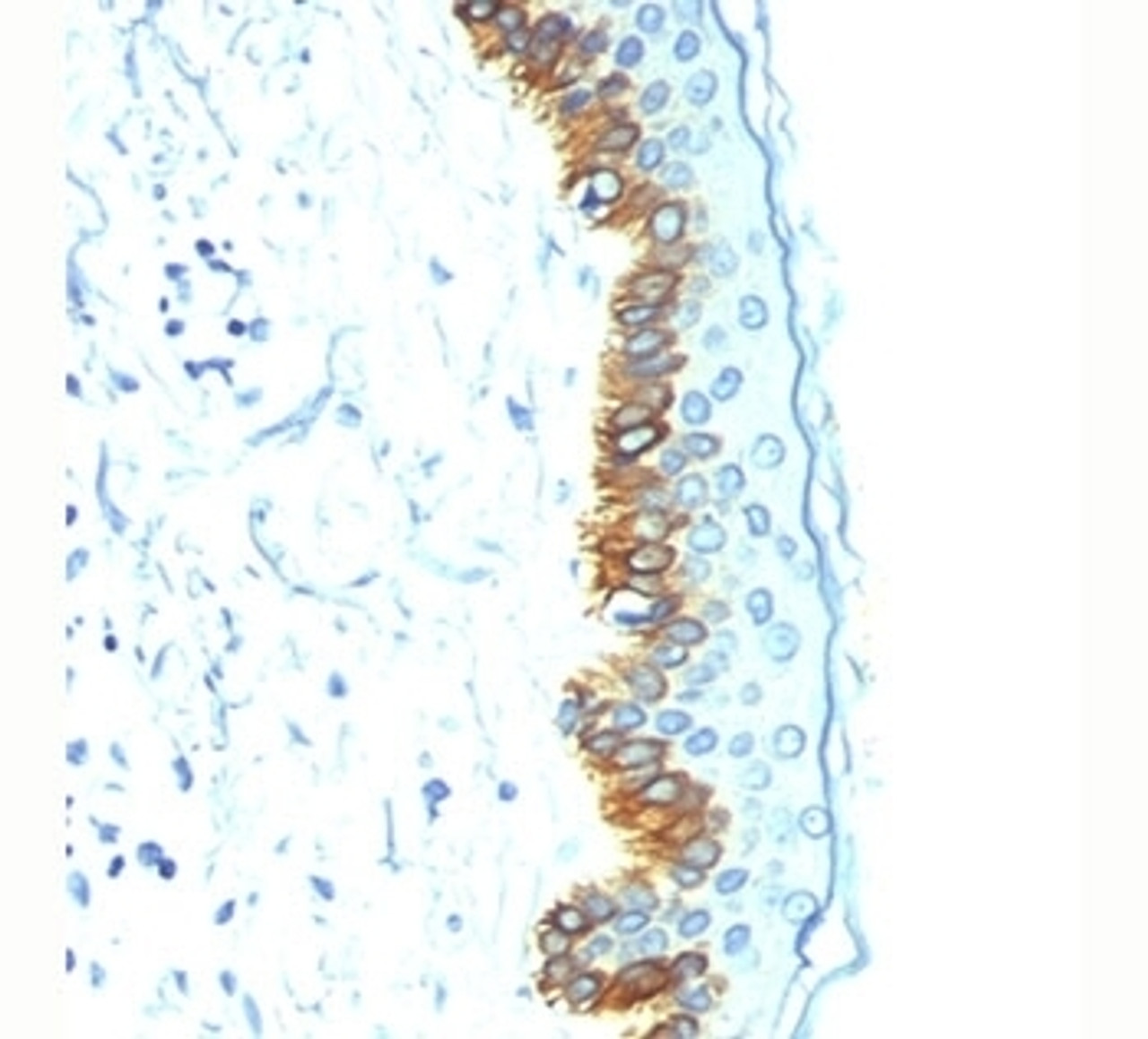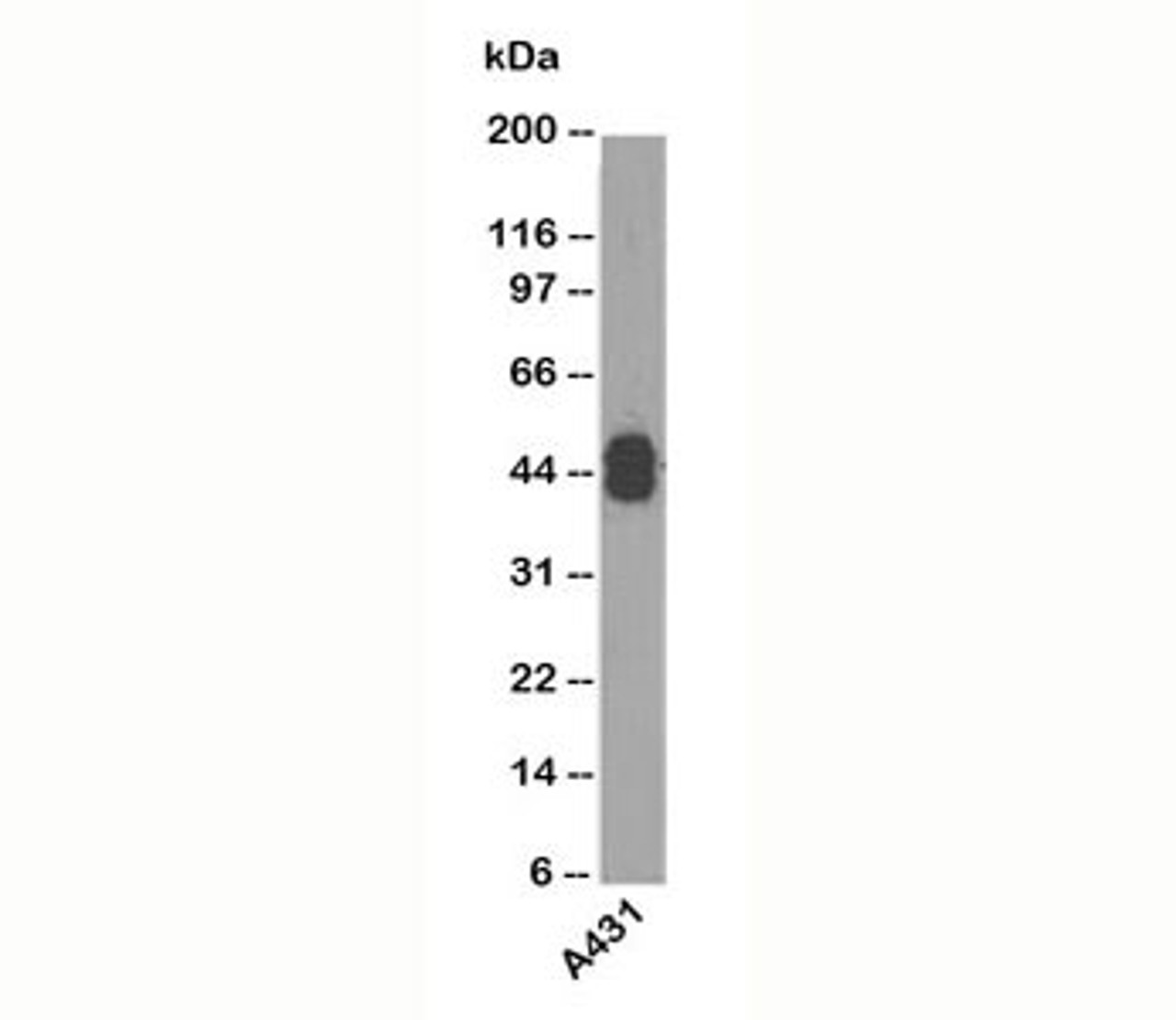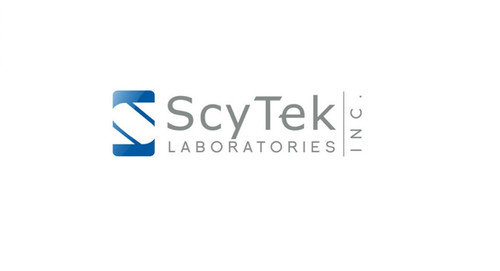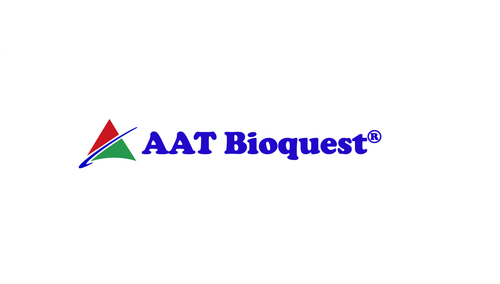Product Description
Acidic Cytokeratin Antibody [AE1] | 33-240 | ProSci
Host: Mouse
Reactivity: Human, Monkey, Bovine, Dog, Rabbit, Mouse, Rat, Chicken, Turtle
Homology: N/A
Immunogen: Solubilized keratin extract from human stratum corneum
Research Area: Signal Transduction
Tested Application: WB, Flow, IHC, IF
Application: Flow Cytometry: 0.5-1 ug/million cells
IF: 1-2 ug/ml
WB: 0.5-1 ug/ml
IHC (FFPE) : 0.5-1 ug/ml for 30 min at RT (1)
Prediluted format : incubate for 30 min at RT (2)
The concentration stated for each application is a general starting point. Variations in protocols, secondaries and substrates may require the Acidic Cytokeratin antibody AE1 to be titered up or down for optimal performance.
1. Staining of formalin-fixed tissues requires boiling tissue sections in 10mM citrate buffer, pH 6.0, for 10-20 min followed by cooling at RT for 20 minutes.
2. The prediluted format is supplied in a dropper bottle and is optimized for use in IHC. After epitope retrieval step (if required) , drip mAb solution onto the tissue section and incubate at RT for 30 min.
Specificiy: N/A
Positive Control 1: N/A
Positive Control 2: N/A
Positive Control 3: N/A
Positive Control 4: N/A
Positive Control 5: N/A
Positive Control 6: N/A
Molecular Weight: N/A
Validation: N/A
Isoform: N/A
Purification: Protein G purified
Clonality: Monoclonal
Clone: AE1
Isotype: IgG1
Conjugate: Unconjugated
Physical State: Liquid
Buffer: PBS with 0.1 mg/ml BSA and 0.05% sodium azide
Concentration: 0.2 mg/mL
Storage Condition: Aliquot and Store at 2-8˚C. Avoid freez-thaw cycles.
Alternate Name: Keratin, type I cytoskeletal 10, Cytokeratin-10, CK-10, Keratin-10, K10, KRT10, KPP
User Note: Optimal dilutions for each application to be determined by the researcher
BACKGROUND: Cytokeratins, also called keratins or simply CKs, are a family of fibrous structural proteins and a major structural component in the outer layer of human skin, as well as hair and nails. There are 20 human epithelial keratins which can be divided into two subfamiles: acidic and basic (more recent human genone sequencing has identified an additional 20 members) . The formation of cytokeratin intermediate filaments requires the pairing of at least one acidic and one basic subfamily member. Members of the same keratin subfamily share extended sequence homology while members of different subfamilies show only limited sequence homology.
This antibody is specific for the 56.5kDa (CK10) , 50kDa (CK14) , 50kDa (CK15) , 48kDa (CK16) , and 40kDa (CK19) keratins of the acidic (Type I or LMW) subfamily. Many studies have shown the usefulness of CKs as markers in cancer research and tumor diagnosis, as epithelial tumors generally maintain the same CK expression patterns as their counterpart normal tissue. Clone AE1 is commonly used with clone AE3 as a pan cytokeratin antibody cocktail (Cat No V2330) .
 Euro
Euro
 USD
USD
 British Pound
British Pound
 NULL
NULL

![Acidic Cytokeratin Antibody [AE1] Acidic Cytokeratin Antibody [AE1]](https://cdn11.bigcommerce.com/s-452hpg8iuh/images/stencil/1280x1280/products/575100/811387/porsci_lo__79508.1648973713__20212.1649091814.png?c=2)


![Acidic Cytokeratin Antibody [AE1] Acidic Cytokeratin Antibody [AE1]](https://cdn11.bigcommerce.com/s-452hpg8iuh/images/stencil/100x100/products/575100/811387/porsci_lo__79508.1648973713__20212.1649091814.png?c=2)


![Acidic Cytokeratin Antibody [AE1] Acidic Cytokeratin Antibody [AE1]](https://cdn11.bigcommerce.com/s-452hpg8iuh/images/stencil/500x659/products/575100/811387/porsci_lo__79508.1648973713__20212.1649091814.png?c=2)








